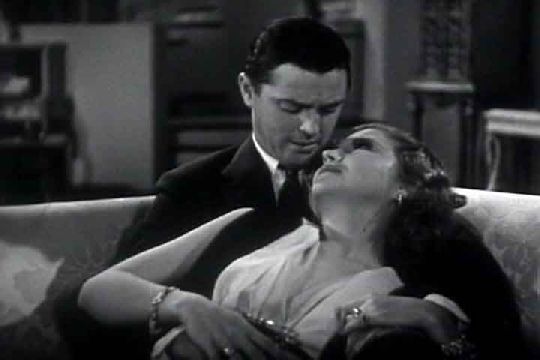Prison Shadows (1936) 

Director: Robert F. Hill
Cast: Edward J. Nugent, Lucille Lund, Joan Barclay
Synopsis: A boxer is framed for murder after an opponent dies in the ring.
Screen boxers aren’t renowned for being a particularly bright bunch, but pretty Gene Harris (Eddie Nugent), the hero of Prison Shadows, has to be one of the dimmest. Not only does he take forever to realise that the woman he loves is a no-good femme fatale, or that there’s a good woman nearby who would gladly die for him, but he also takes his own sweet time figuring out that he’s the fall guy for a sting operation built around the death of any opponent unlucky enough to meet him in the ring. In fact, poor Harris is so dim he needs his dog to figure things out for him.
Prison Shadows opens with a boxing match taking place in what might have been an unexpected location if it wasn’t for the movie’s title. It’s a fight which Harris wins with ease. And so he should, for he was a professional boxer on the outside. In fact, the reason he’s in prison now is that he was sentenced for the murder of an opponent in the ring. Quite how that works I’m not sure, but there it is — writer Al Martin penned such classics as What! No Spinach?, Goofy Ghosts and Society Goes Spaghetti, so there can be no doubting his credentials and I’m sure he carried out copious amounts of research before committing the screenplay for Prison Shadows to paper. Anyway, both Harris and his unfunny comic relief trainer Dave (Sid Saylor — King Kong, High Noon) are due for release and plan to revive Harris’s boxing career.
Harris is disappointed to find that his girlfriend Claire (Lucille Lund) isn’t waiting at the prison gates to share his first taste of freedom, but at least his faithful mutt Babe is there to slobber wet kisses all over his face — oh, yeah Mary (Joan Barclay), the secretary of Harris’s manager is also there to shake his hand and take him for doughnuts to ease his disappointment at not seeing Claire. It’s pretty obvious that Mary has a major case of the hots for Harris, but he’s too pre-occupied with thoughts of Claire to see it. He’s also too dim to see that Claire is totally unimpressed with his release and shows not even the slightest hint of returning his love. She’s also got no time for Babe, which pretty much marks her card as far as the rest of us are concerned. Claire’s a wrong ‘un, and we can only peek from behind parted fingers as we wait to see what nefarious plans she has for her witless boyfriend.
Given that Prison Shadows is a 1930s B-movie produced by Mercury, a long-defunct production company who have only two production credits to their name on IMDb, it’s hardly surprising that it hits no heights worth speaking of. The lead characters are attractive — which is a boon when it comes to the females, but something of a drawback for Eddie Nugent, who looks more like an electrical appliance salesman than a boxer. Lund, in particular, looks delicious, and manages to give a far more assured performance than Barclay — which isn’t saying a lot to be honest: the standard of acting is as poor as you’d expect from a movie this old and this cheap. And yet it’s difficult to completely dislike a movie which features a boxing match between a pair of fighters named ‘Killer Harris’ and ‘Dynamite Murphy’, portly policemen struggling to burst out of changing room lockers, and has as its murder weapon a ‘poison that evaporates through the bloodstream.’ I mean, really — what does that even mean? It’s too late to ask Al Martin, the old hack died back in 1971, but it would have been funny watching him struggling to explain the meaning of that phrase.
And did I mention how dim our hero is? Here’s an example: when he comes home to find Mary asleep on his couch after staying up late to look after his dog, Harris says goodnight to the woman and takes the dog to bed. That’s how dim he is…
(Reviewed 14th April 2014)
httpv://www.youtube.com/watch?v=
